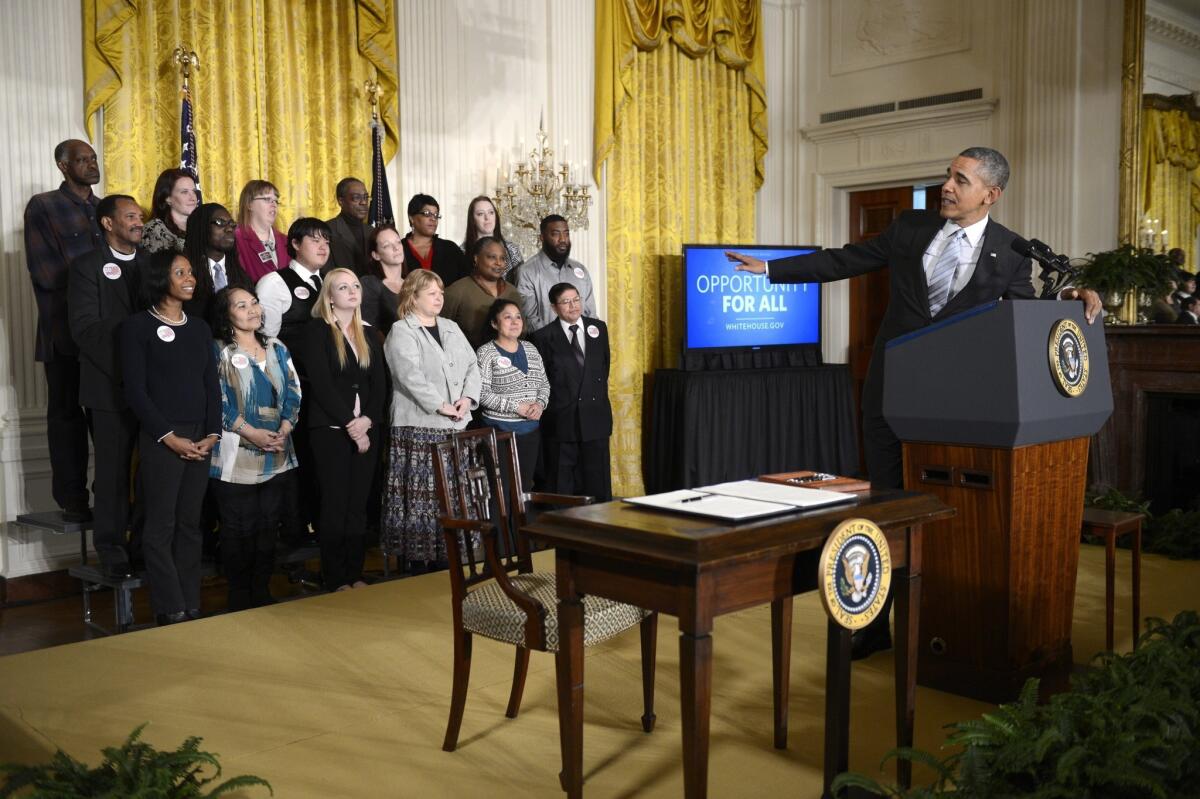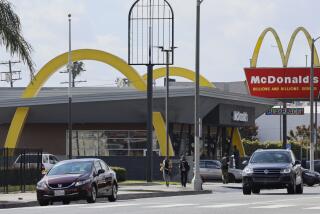Higher minimum wage would reduce jobs but increase incomes, CBO says

WASHINGTON -- Increasing the federal minimum wage to $10.10 an hour would cause the loss of about 500,000 jobs but would boost earnings for about 16.5 million low-wage workers, the Congressional Budget Office said Tuesday.
The report said that most low-wage workers “would receive higher pay that would increase their family’s income, and some of those families would see their income rise above the federal poverty threshold.”
“But some jobs for low-wage workers would probably be eliminated, the income of most workers who became jobless would fall substantially, and the share of low-wage workers who were employed would probably fall slightly,” the CBO said.
PHOTOS: Federal Reserve chairs through the years
A $10.10 minimum wage would result in 900,000 fewer people living below the poverty threshold.
President Obama and many congressional Democrats want to raise the $7.25 federal minimum wage to help reduce income inequality. Republicans argue the move would hurt low-wage workers because employers would cut jobs in the face of higher wage costs.
The new findings by the nonpartisan CBO land in the middle of that debate. People on both sides of the issue quickly pointed to evidence in the report to back up their arguments.
“This report confirms what we’ve long known: while helping some, mandating higher wages has real costs, including fewer people working. With unemployment Americans’ top concern, our focus should be creating – not destroying – jobs for those who need them most,” said Brendan Buck, a spokesman for House Speaker John Boehner (R-Ohio).
Rep. George Miller (D-Martinez) criticized the CBO for producing “an outdated view of the employment effects of the minimum wage.”
But he noted that the report “confirms that raising the minimum wage will lift nearly a million people above the poverty line.”
CBO analyzed two options for raising the minimum wage.
The first was an increase to $10.10 an hour by July 1, 2016, in three steps, starting this summer, and automatically increased in the future based on inflation. The second option would increase the minimum wage to $9 an hour by July 1, 2016, in two steps, starting next year and would not be indexed for inflation.
The second option would have less effect, causing a loss of about 100,000 jobs in the second half of 2016 and raising the earnings of about 7.6 million Americans earning less than $9 an hour.
Obama and Democrats want the federal minimum wage raised to $10.10 an hour. Last week, Obama signed an executive order setting that minimum wage for federal contract workers.
CBO said the $10.10-an-hour option “would have substantially larger effects on employment and income than the $9.00 option.” The higher minimum wage would affect more workers and give them a bigger raise.
The estimated impacts for both options were for the second half of 2016, after the higher wages are fully in place.






